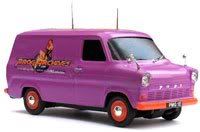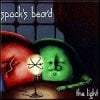Progarchives.com has always (since 2002) relied on banners ads to cover web hosting fees and all.
Please consider supporting us by giving monthly PayPal donations and help keep PA fast-loading and ad-free forever.
/PAlogo_v2.gif) |
|
Post Reply 
|
Page 12> |
| Author | ||||
Certif1ed 
Special Collaborator 

Honorary Collaborator Joined: April 08 2004 Location: England Status: Offline Points: 7559 |
 Topic: home recording question(s) Topic: home recording question(s)Posted: October 29 2006 at 16:16 |
|||
|
Studers just sound great - if you plug good mics into them, that is

Edited by Certif1ed - October 29 2006 at 16:20 |
||||
|
The important thing is not to stop questioning.
|
||||
 |
||||
Guests 
Forum Guest Group 
|
 Posted: October 29 2006 at 15:20 Posted: October 29 2006 at 15:20 |
|||
|
This entire album: http://en.wikipedia.org/wiki/McCartney_%28album%29 was recorded in his living room on a 4-track Studer reel-to-reel with minimum mic-ing. amazing isn't it ? . Edited by utah_man - October 29 2006 at 15:21 |
||||
 |
||||
mystic fred 
Special Collaborator 

Honorary Collaborator Joined: March 13 2006 Location: Londinium Status: Offline Points: 4252 |
 Posted: October 29 2006 at 15:10 Posted: October 29 2006 at 15:10 |
|||
|
||||
 Prog Archives Tour Van Prog Archives Tour Van 
|
||||
 |
||||
Guests 
Forum Guest Group 
|
 Posted: October 29 2006 at 15:08 Posted: October 29 2006 at 15:08 |
|||
is he the guy who recorded stuff within a huge empty grain silo to get reverb ? . |
||||
 |
||||
Guests 
Forum Guest Group 
|
 Posted: October 29 2006 at 15:06 Posted: October 29 2006 at 15:06 |
|||
an electronic placebo...  . |
||||
 |
||||
mystic fred 
Special Collaborator 

Honorary Collaborator Joined: March 13 2006 Location: Londinium Status: Offline Points: 4252 |
 Posted: October 29 2006 at 15:03 Posted: October 29 2006 at 15:03 |
|||
i agree - the early Buddy Holly albums still sound fantastic!
|
||||
 Prog Archives Tour Van Prog Archives Tour Van 
|
||||
 |
||||
Guests 
Forum Guest Group 
|
 Posted: October 29 2006 at 15:02 Posted: October 29 2006 at 15:02 |
|||
well... a great big salute all good recording engineers  . |
||||
 |
||||
Guests 
Forum Guest Group 
|
 Posted: October 29 2006 at 14:59 Posted: October 29 2006 at 14:59 |
|||
isn't it interesting how much music - very good music incidently - was recorded in years gone by with very basic low-tech equipment. how much recording technology do we REALLY need to produce a great song ? this is a question i've been asking myself for a long time. . |
||||
 |
||||
penguindf12 
Prog Reviewer 

Joined: September 20 2004 Location: United States Status: Offline Points: 831 |
 Posted: October 29 2006 at 13:24 Posted: October 29 2006 at 13:24 |
|||
|
1.) Mixing does suck, about all I can do is record all the tracks, shove 'em left or right in the mix, adjust the volume, maybe add some echo and reverb, occaisionally add distortion, and then hope for the best. 2.) Computer failure always gets me, and other failures (broken cords, plugs, keyboard, wires, etc.)
Really, just stay away from technology altogether and you'll be fine.
|
||||
 |
||||
MarkOne 
Forum Groupie 

Joined: August 18 2006 Location: United Kingdom Status: Offline Points: 90 |
 Posted: October 28 2006 at 12:36 Posted: October 28 2006 at 12:36 |
|||
|
Sound engineers know that when something sounds muddy, exactly which frequency bands to cut, they know how to sidechain a compressor to ensure that the vocal cuts through the wall of guitars, they know how to patch a delay into the insert buss of the mixer, they know how to calculate the delay so it is in sync with the tempo of the track. They know which mic out of the dozens of mics in the cupboard will suit your voice, your guitar cab (and where to point it at the cab) your drum overheads. They will know which of the many preamps in the rack suits the mic they have chosen, they will know how to calibrate a 24 track 2" studer, how to repatch a 1976 API board from record to mix they will understand what all the hundreds of knobs on the Neve 48 channel board do.
They will know how to set up a dead fader for the producer to mess with when he insists that he knows better than the engineer how to balance a particular sound.
If they are really good, they'll know how the actual electronics under the hood works and when it goes wrong how to fix it. Occasionally (very occasionally these days, though not once, years ago) they will actualy know how to design studio gear too!
Musicians know how to play, If thy are good musicians they might actually know how to play well.
Very occasionally there are people who can be both musician and engineer.
Often and more usually (like me) they only think that can! Edited by MarkOne - October 28 2006 at 12:38 |
||||
 |
||||
Guests 
Forum Guest Group 
|
 Posted: October 28 2006 at 11:43 Posted: October 28 2006 at 11:43 |
|||
|
...so what is it that sound engineers know that we musicians do not (and vise-versa). . Edited by utah_man - October 28 2006 at 11:44 |
||||
 |
||||
Certif1ed 
Special Collaborator 

Honorary Collaborator Joined: April 08 2004 Location: England Status: Offline Points: 7559 |
 Posted: October 25 2006 at 03:49 Posted: October 25 2006 at 03:49 |
|||
|
We tend to find that mixing is best done at those times when you feel less creative - in other words, only worry about what it sounds like when you've run out of musical ideas.
That way you get to change hats - and a change is as good as a rest 
|
||||
|
The important thing is not to stop questioning.
|
||||
 |
||||
MikeEnRegalia 
Special Collaborator 

Honorary Collaborator Joined: April 22 2005 Location: Sweden Status: Offline Points: 21596 |
 Posted: October 25 2006 at 02:49 Posted: October 25 2006 at 02:49 |
|||
|
it's the same as trying to be actor and director. It may work, but most of the time it doesn't.
|
||||
 |
||||
pammiwhammi 
Forum Groupie 

Joined: June 29 2005 Location: United States Status: Offline Points: 54 |
 Posted: October 24 2006 at 17:59 Posted: October 24 2006 at 17:59 |
|||
|
I'd have to say trying to engineer and play simultaneously is a major pain. I sometimes wish I had a collaberator to work with so we could alleviate each other's suffering in this regard...
|
||||
|
"I repeat myself when under stress, I repeat myself when under stress, I repeat myself when under stress..."
|
||||
 |
||||
Empathy 
Forum Senior Member 

Joined: June 30 2005 Status: Offline Points: 1864 |
 Posted: October 23 2006 at 22:38 Posted: October 23 2006 at 22:38 |
|||
Agreed. Mixes are the bane of my existence as well. As a matter of fact, I was just checking in on PA to see what's what before taking yet another crack at a track that I've been whittling away at. One of my first tasks tonight is getting rid of some compression, or at least upping the threshold a bit. At last listen, I found the overall sound of the track somewhat "woofy", and I suspect that the compressor's adding to that issue. |
||||
|
Pure Brilliance:

|
||||
 |
||||
Certif1ed 
Special Collaborator 

Honorary Collaborator Joined: April 08 2004 Location: England Status: Offline Points: 7559 |
 Posted: October 23 2006 at 17:27 Posted: October 23 2006 at 17:27 |
|||
|
^I got over all these issues by using the TonePort, which even lets you model where the mic is in relation to the cab, and the room size

Edited by Certif1ed - October 23 2006 at 17:28 |
||||
|
The important thing is not to stop questioning.
|
||||
 |
||||
MarkOne 
Forum Groupie 

Joined: August 18 2006 Location: United Kingdom Status: Offline Points: 90 |
 Posted: October 23 2006 at 11:01 Posted: October 23 2006 at 11:01 |
|||
I'd say that the top 3 most frustrating issues in pretty much any home studio will be usually overlooked completely and they are:
1. Poor acoustics
2. Poor acoustics
3. Poor acoustics
Any mic'd sources - vocals, acoustic guitars, mic'd guitar/bass cabs etc will be affected massively by bad acoustics. Most people have their home studio in a small room and there will be multiple phase nodes and cancellations that totally screw the sound that the mic hears, and EQ only goes some way to fix things
Even expensive monitors in an untreated room can sound truly awful and provide a badly distorted picture of what is really going on. Typically this will lead to muddy mixes.
Bass traps and acoustic foam panels are pretty cheap and are often a real revelation. Once you trust the environment you record and mix in you can then invest in better kit.
|
||||
 |
||||
Certif1ed 
Special Collaborator 

Honorary Collaborator Joined: April 08 2004 Location: England Status: Offline Points: 7559 |
 Posted: October 23 2006 at 06:08 Posted: October 23 2006 at 06:08 |
|||
Yes - it does tend to be mid-range EQ, but also for some tracks "air", or frequencies above 16-20khz needs to be removed, as the "air" is more effective if it only comes from a few selected tracks. Mixing "air" is cool, as you can breathe life into a dead-sounding track and make it sparkle. I also find myself spending some time in the very low frequecies, trying to get the right balance between feel-it-in-the-pit-of-your-stomach bass and nasty booming. This typically happens when bass drum, bass guitar and low keyboards are at work, although detuned guitars are fiendish at this too. Mid range is the nastiest though - you often get areas that "shout" at you through the monitors, and finding the instrument or instrument combination that's doing it is a painstaking job. |
||||
|
The important thing is not to stop questioning.
|
||||
 |
||||
MikeEnRegalia 
Special Collaborator 

Honorary Collaborator Joined: April 22 2005 Location: Sweden Status: Offline Points: 21596 |
 Posted: October 23 2006 at 03:24 Posted: October 23 2006 at 03:24 |
|||
|
^ I agree about taking away frequences being better than increasing them ... in order for that to work you'll need to ensure that all the frequencies are there in the signal:
If you play an instrument like an electric guitar or a synthesizer just for yourself, without any other instrument in the mix, you tend to remove the mid-band frequencies - it makes the guitar sound more pleasant to the ear. However later on in the mix you'll need those frequencies ... so when recording such instruments it's always a good idea to configure preamp/effects/etc. to not take away any frequencies ... you can always tweak them in the mix. |
||||
 |
||||
Certif1ed 
Special Collaborator 

Honorary Collaborator Joined: April 08 2004 Location: England Status: Offline Points: 7559 |
 Posted: October 23 2006 at 03:06 Posted: October 23 2006 at 03:06 |
|||
|
Mixing, mixing and mixing.
I solved the interface problem by getting a Line 6 TonePort UX2 - http://www.piedog.com/musical_instruments/pro_music_live/computer_music/computer_hardware/audio_interfaces/line_6-toneport_ux2.htm - which makes my guitar, bass and Shure SM-58 sound utterly professional, even if it doesn't improve my playing... As long as you don't go into the red, you will avoid distortion - the SM-57 is a superb mic - but you need some form of monitor with meters on your inputs. Hardware is better than software - give me needles on a dial over LEDs anytime. A good set of cans should help too - your ears are better than your eyes at spotting distortion! It takes a little getting used to, but recording with headphones on is the best way to ensure an accurate recording. The biggest problem I have is mixing. Even though the individual sounds are usually great, I find I need to hack out certain EQ bands in order to make one instrument "play off" another well - and then I need to snip away at another instrument, and before long, the whole mix sounds a mess unless I get lucky - and I have to go back to the previous mix. I read a great article on mixing that recommended taking away instead of adding - thus considerably reducing the need for compression, which sucks the life out of a great track, and although it seems counter-intuitive at first, it does seem to work. The only fix I've found for this issue is to keep coming back and try mixing again, listening to the mixes on different systems, and mixing again... For example, the track "Monkey" on my MySpace site has been mixed 19 times, and it's still not quite there, although to get the most recent mix, I spent an hour and a half snipping at EQ bands and removing as much track compression as possible. My favourite software for recording is Sony Acid Pro - we use version 5, but will upgrade to 6 soon. Sonar just didn't seem to fit our needs - although I used to be a big Cakewalk fan. The other great thing about Acid is that Sony now do a free and uncrippled trial version http://www.sonymediasoftware.com/products/showproduct.asp?PID=906 
|
||||
|
The important thing is not to stop questioning.
|
||||
 |
||||
Post Reply 
|
Page 12> |
| Forum Jump | Forum Permissions  You cannot post new topics in this forum You cannot reply to topics in this forum You cannot delete your posts in this forum You cannot edit your posts in this forum You cannot create polls in this forum You cannot vote in polls in this forum |